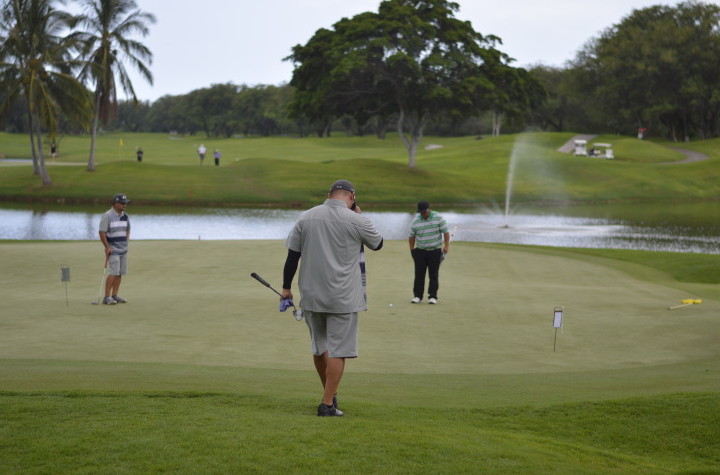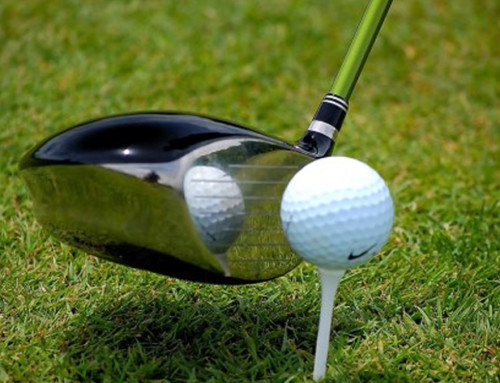Before I make this next statement, I want you to know that it’s coming from someone with nearly a decade’s worth of experience in the golf industry. I have been a cart attendant, starter, marshal, Pro Shop worker, and even a Club Play and Tournament coordinator before I landed this comfy desk job. I have also worked at a few different golf courses, both public and private, in Hawaii and the mainland. So I ask for a little bit a faith on your part that I’m not making this statement erroneously.
Alright. Here it goes. Believe me or not:
Beginners are not the leading cause of slow play.
Now hold up a second before you hit the comments section. Let me present to you a couple of common scenarios to illustrate my point.
Scenario #1:
There’s a group of four, some or all are beginners. Maybe they are tourists who decided to take up golf today because they heard the golf courses in Hawaii are beautiful. With this motivation, they correctly picked Ewa Beach Golf Club as their destination.
Right off the first tee, they start to realize why professional golfers make so much money. By the second hole the group behind, understandably so, calls the Pro Shop after watching one-too-many four putts throw off their rhythm. The marshal is sent out to talk to the beginner group. He explains the concept of Pace of Play and asks them to pick up the pace (or their ball, if necessary). The marshal may even ask them to let the group behind through if there’s room.
Nine times out of ten, the group agrees and hustles along the rest of their round. Sure, their score doesn’t improve, but they have a little more fun without the group in back breathing down their necks. They can plod along, searching for that one shot to bring them back for more.
Scenario #2:
A group of avid golfers go out with their normal foursome. They are all mid to low handicappers. Maybe some money is on the line. Maybe just pride. In any case, the score matters and “gimmies” are sparse. They were looking for the best greens on Oahu, so they correctly picked Ewa Beach Golf Club as their destination.
Right off the first tee, it’s clear some of them have been putting in some extra time at the range. Today is the day one of them might shoot their lowest round. After a few holes the group behind, understandable so, calls the Pro Shop after watching one-too-many four-side reads on four foot putts. The marshal is sent out to talk to the group. He asks them politely to pick up the pace as there’s a growing gap in front. Recognizing that this group knows golf, he might suggest letting the player behind through to ease up the pressure on their game.
Four times out of ten, the group becomes flustered. And a flustered golfer is a slower golfer. One of them might even blame the marshal for their now declining quality of play. They stubbornly refuse to let the group behind play through, convinced that their pace is fine, even though it is far from.
Now, I’m sure neither of these scenarios seem like a stretch. We’ve probably all played behind groups like that. Perhaps even been in a few.
So am I suggesting that all beginner golfers are all amiable, marshal-friendly cooperators while money plays are curmudgeonly Tiger wannabes? Not at all. All I’m trying to demonstrate is this:
Skill level doesn’t make a slow golfer. Discourtesy does.
Pace of play is not a privilege of the low handicapper. It is a courtesy we give each other as fellow patrons of the course. It does not matter what brings you to the course, what your score is, or what’s on the line. Pace is as much a part of playing a proper round as anything else. Heck, even professional golfers are held to a clock.
So the next time you’re out there and the marshal drives up to you asking for a little pace, please be kind. S/he’s not trying to ruin your round, just trying to help everyone else’s. A goal that the both of you should share.




Leave A Comment